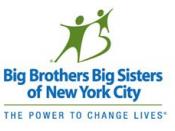Measures of PersonalityMy research was conducted on the sixteen personality factors and the Myers-Briggs type indicator tests. I will be summarizing the circumstances under by which using both tests would be indicated, the stated reliability and validity of both instruments, the factors that users should consider, and my overall opinion of the usefulness of each test.
The Sixteen Personality Factors Questionnaire was derived by Raymond Cattell. His sixteen factors of personality came from his idea that the numerous descriptive words that were considered personality characteristics could be boiled down to fewer, more central traits. By taking participants responses (yes or no answers) to two hundred statements about behavior, Cattell could then assess the personality characteristics of each respondent. The sixteen personality factor instrument has been broadly used for more then forty years now. It is being used for a mixture of applications, including hiring and promotion recommendations, provide information to help determine occupations for which each individual is best suited, help identify students with potential academic, emotional, and social problems.
These lists of things are some of the few reasons why this instrument is being utilized today.
In an article entitled "16PF Screening for Appropriateness of Mentors," researchers invested the Big Brothers Big Sisters program to determine the validity of the 16PF as a predictor of the appropriateness of a mentor (Garner et al., 2003). Seventy-four members from the Big Brothers Big Sisters program were the subject of the sixteen personality factors assessment. The professional staffs from the Big Brother Big Sister program administered the questionnaire and were assessed with a Mentor Effectiveness Rubric plan developed for this purpose. Subjects were also rated as appropriate or inappropriate by three different raters. Significant differences were found between the appropriate and inappropriate mentors on the L scale (Vigilance) and the Q4...


